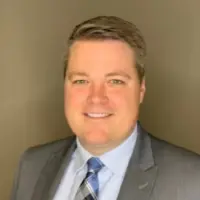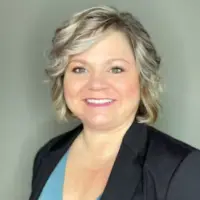About Burrell Behavioral Health – Carrollton
Burrell Behavioral Health Carrollton Clinic is located in Carrollton, Missouri. They offer inpatient and outpatient treatment for persons struggling with addiction.
Their outpatient therapy sessions allow individuals to maintain daily activities while receiving care. Their residential program provides housing and meals alongside substance abuse treatment.
Holistic Treatment for Children and Adults in Carrollton
The facility caters to a diverse clientele, including children and adolescents with serious emotional disturbances, adults and young adults. I’m impressed by the multidisciplinary approach they take to treatment.
They offer a comprehensive continuum of care in collaboration with families, schools and healthcare systems. They also offer telehealth services to enhance accessibility and provide around the clock crisis lines for immediate assistance.
Flexible Payment Methods
The facility accepts a wide variety of payment methods. Along with cash or self payment, they accept Medicare, Medicaid, private health insurance, state financed health insurance plans other than Medicaid, federal military insurance and state mental health agency funds. A sliding fee scale is available to eligible individuals, based on income, household size and other factors.
They are accredited by CARF International and recognized as a Certified Community Behavioral Health Clinic.
Convenient Location Near Carrollton Recreation Park
The city of Carrollton offers plenty of historical and natural attractions that may be beneficial to recovery. While in outpatient treatment, you might enjoy exploring Van Meter State Park, which features a hand dug earthwork and burial mounds, or visiting the A.W. Perry Homestead Museum to learn more about pioneer life.
The Carroll County Historical Museum provides insights into local history. For outdoor recreation and quiet reflection in nature, you might like to check out Carrollton Recreation Park.
Rehab Score
Location
Accepted Insurance


Other Forms of Payment
Medicaid is a state based program that helps lower-income individuals and families pay for healthcare. Medicaid covers addiction treatment so those enrolled can use their coverage to pay for rehab. When a program accepts Medicaid the client often pays very little or nothing out of their own pocket.
Private insurance refers to any kind of healthcare coverage that isn't from the state or federal government. This includes individual and family plans offered by an employer or purchased from the Insurance Marketplace. Every plan will have different requirements and out of pocket costs so be sure to get the full details before you start treatment.
Self-pay involves paying for treatment out of your own pocket. You can use savings or credit, get a personal loan, or receive help from family and friends to fund your treatment. If you don't have insurance or your insurance plan doesn't cover a specific program, self-pay can help ensure you still get the care you need.
Financial aid can take many forms. Centers may have grants or scholarships available to clients who meet eligibility requirements. Programs that receive SAMHSA grants may have financial aid available for those who need treatment as well. Grants and scholarships can help you pai for treatment without having to repay.
Sliding scale payments are based on a client's income and family size. The goal is to make treatment affordable to everyone. By taking these factors into account, addiction recovery care providers help ensure that your treatment does not become a financial burden to you or your family, eliminating one barrier to care.
Medicare is a federal program that provides health insurance for those 65 and older. It also serves people under 65 with chronic and disabling health challenges. To use Medicare for addiction treatment you need to find a program that accepts Medicare and is in network with your plan. Out of pocket costs and preauthorization requirements vary, so always check with your provider.
Addiction Treatments
Levels of Care
Outpatient Programs (OP) are for those seeking mental rehab or drug rehab, but who also stay at home every night. The main difference between outpatient treatment (OP) and intensive outpatient treatment (IOP) lies in the amount of hours the patient spends at the facility. Most of the time an outpatient program is designed for someone who has completed an inpatient stay and is looking to continue their growth in recovery. Outpatient is not meant to be the starting point, it is commonly referred to as aftercare.
Treatments
Mental health rehabs focus on helping individuals recover from mental illnesses like bipolar disorder, clinical depression, anxiety disorders, schizophrenia, and more. Mental health professionals at these facilities are trained to understand and treat mental health issues, both in individual and group settings.
Programs
Adult rehab programs include therapies tailored to each client's specific needs, goals, and recovery progress. They are tailored to the specific challenges adult clients may face, including family and work pressures and commitments. From inpatient and residential treatment to various levels of outpatient services, there are many options available. Some facilities also help adults work through co-occurring conditions, like anxiety, that can accompany addiction.
Young adulthood can be an exciting, yet difficult, time of transition. Individuals in their late teens to mid-20s face unique stressors related to school, jobs, families, and social circles, which can lead to a rise in substance use. Rehab centers with dedicated young adult programs will include activities and amenities that cater to this age group, with an emphasis on specialized counseling, peer socialization, and ongoing aftercare.
Clinical Services
Experiential therapy is a form of therapy in which clients are encouraged to surface and work through subconscious issues by engaging in real-time experiences. Experiential therapy departs from traditional talk therapy by involving the body, and having clients engage in activities, movements, and physical and emotional expression. This can involve role-play or using props (which can include other people). Experiential therapy can help people process trauma, memories, and emotion quickly, deeply, and in a lasting fashion, leading to substantial and impactful healing.
Group therapy is any therapeutic work that happens in a group (not one-on-one). There are a number of different group therapy modalities, including support groups, experiential therapy, psycho-education, and more. Group therapy involves treatment as well as processing interaction between group members.
In individual therapy, a patient meets one-on-one with a trained psychologist or counselor. Therapy is a pivotal part of effective substance abuse treatment, as it often covers root causes of addiction, including challenges faced by the patient in their social, family, and work/school life.
Nicotine Replacement Therapy (NRT) is a way of getting nicotine into the bloodstream without smoking. It uses products that supply low doses of nicotine to help people stop smoking. The goal of therapy is to cut down on cravings for nicotine and ease the symptoms of nicotine withdrawal.
Nutrition therapy, aka medical nutrition therapy (MNT), is a way of treating physical, emotional, and medical conditions through diet. Specific dietary plans are designed by professional nutritionists or registered dietitians, and patients follow them in order to positively affect their physical and mental health.
Amenities
-
Residential Setting
Staff & Accreditations
Staff

C.J. Davis
CEO

Jennifer Gagnon
CFO

Dr. Garima Singh
Chief Medical Officer

Tom Weber
Chief Administrative Officer

Stacey Hudson
Chief Human Resources Officer

Dee King
Chief of Staff
Accreditations

The Substance Abuse and Mental Health Services Administration (SAMHSA) is a branch of the U.S. Department of Health and Human Services. Established in 1992 by congress, SAMHSA's mission is to reduce the impact of substance abuse and mental illness on American's communities.
SAMHSA Listed: Yes
Contact Information
305 North Mason Street
Carrollton, MO 64633







